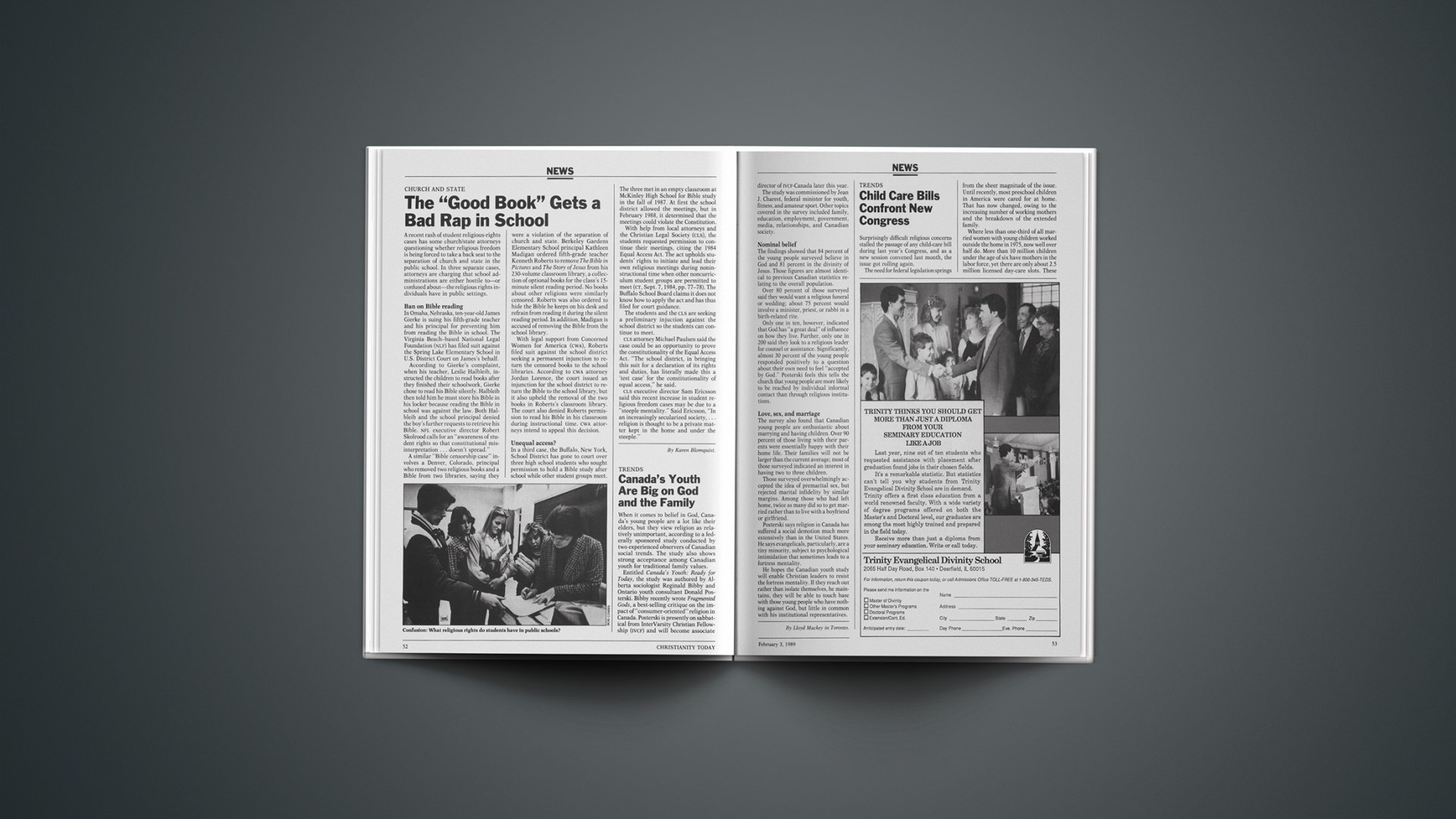Another major accrediting agency has issued a warning to trustees at Southeastern Baptist Theological Seminary in Wake Forest, North Carolina, as a result of trustees’ efforts to change the way the seminary selects faculty.
The Southern Association of Colleges and Schools (SACS) has given Southeastern Seminary until December of this year to correct what the association maintains are procedural shortcomings. The Association of Theological Schools (ATS) in the United States and Canada previously noted difficulties at the school, but has yet to issue its final recommendations (CT, Oct. 7, 1988, p. 38).
Southeastern, one of six graduate theological schools affiliated with the Southern Baptist Convention (SBC), has been in turmoil since October 1987, when a new conservative majority of the school’s board of trustees altered the faculty selection process to ensure only biblical inerrantists would be appointed. The policy change led to the resignation of eight administrators at the school, including its president, Randall Lolley, and academic dean Morris Ashcraft (CT, Nov. 20, 1987, p. 46).
The Southern Association and the ATS sent investigating teams to the seminary in response to concerns about academic freedom and the governance of the institution. The Southern Association report concluded that Southeastern does not conform to accreditation criteria in three areas: faculty selection, academic freedom, and organization and administration.
At the heart of the conflict is the school’s implementation of the new policy on biblical inerrancy. Trustees, along with the seminary’s new administration, claim they have the right to set criteria for faculty selection. Faculty, as well as supporters of the seminary’s previous leadership, caution that changes must be accomplished through established, academically acceptable procedures.
The Southern Association report cites “changes in the makeup” of the SBC as the apparent source of trustees’ perceived mandate to change the seminary’s character. The report states that trustees have sought to bring about this change “by rather arbitrarily infringing upon the established traditions of the institution.” The report notes that the biblical inerrancy requirement “was adopted without consultation with the administration or faculty of the school, that there has been no formal board action, that the procedures for amending the bylaws have not been followed, and that published statements do not accord with present practice.”
Lewis Drummond, current president at Southeastern Seminary, acknowledged the school has problems that must be addressed. “There are some procedural questions,” he said. “We’re going to take whatever steps are necessary to correct those, provided they don’t violate our purpose, our documents, and the ultimate goals of the seminary.” Drummond called the Southern Association’s recommendations suggestions the school could “by and large meet.”
Robert Crowley, chairman of the seminary’s board of trustees, expressed displeasure with the fact-finding committee’s report, but said he believes the seminary will eventually be exonerated of any wrongdoing.
Mark Caldwell, one of the minority trustees still associated with the moderate wing of the SBC, is also skeptical. “The new majority on the board doesn’t understand the role of trustees,” he said. “They feel they have a mandate from the Southern Baptist Convention. They may have. Nobody’s questioning that. But they’re doing it in a reckless way. They’re simply moving ahead willy-nilly into a morass of accrediting and legal problems.”
By Mark Wingfield.










